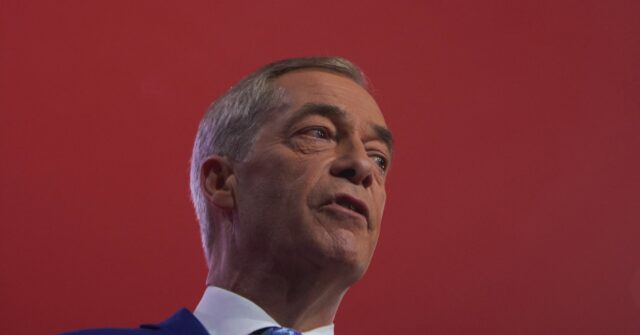Nigel Farage, the leader of Reform UK, has issued a stern warning to the Labour Party government, cautioning against any attempts to backtrack on the decisions made during Brexit. His remarks come at a time when the European Union (EU) has begun to apply pressure on London regarding fishing rights, immigration, and sovereignty issues. Prime Minister Keir Starmer, who is under scrutiny for his leadership, is seeking to negotiate a new trade deal with the EU but faces resistance from Farage and his party. Farage emphasized that Reform MPs will closely monitor Starmer’s actions, particularly regarding any potential concessions on British waters and fishing rights.
Reports indicate that the EU aims to reclaim fishing rights within UK waters for European fishermen, which Farage and others view as a direct assault on Britain’s sovereignty. The EU has also signaled its intention to push for the UK’s participation in their youth mobility scheme, which would ease immigration for young EU citizens. Additionally, the bloc is looking for the UK to adhere to rulings made by the European Court of Justice, a move that would undermine British autonomy in legal matters. Allegedly, the EU’s negotiating document, which will soon be presented to European ministers, includes these points as key red lines for any renegotiation of the post-Brexit trade deal.
Environmental concerns are also emerging from this situation. Charles Clover, co-founder of the Blue Marine Foundation, condemned the EU’s demands as “absolutely outrageous,” warning that they could lead to significant ecological harm in UK marine protected areas. He characterized the EU’s approach as a greedy exploitation of the UK’s resources, highlighting a dissonance between the EU’s commitment to environmental protection and its practices in trade negotiation. Clover’s remarks resonate with a growing apprehension among environmental advocates who fear the repercussions of such negotiations on marine biodiversity and natural resources.
In terms of food and agricultural trade, the EU is reportedly insisting that the UK adopt and codify all new sanitary and phytosanitary (SPS) laws originating from Europe. This requirement would not allow the UK to formulate its regulations independently but would directly align UK laws with those of the EU, further entrenching European influence over British policy. This demand raises significant questions regarding the UK’s ability to regulate its agricultural standards, a crucial factor for many British farmers and consumers concerned about local practices versus EU norms.
Amid this political turmoil, there are implications for Labour and its leadership under Starmer, as public support for reformist parties like Reform UK continues to rise. Starmer’s government faces potential backlash if it appears to compromise on key Brexit issues, especially in light of Farage’s growing popularity among discontented voters from both Labour and the Conservatives. Concerns about a loss of sovereignty to the EU could alienate base supporters, driving them towards Reform UK, which has positioned itself as a defender of Brexit principles and national autonomy.
In the backdrop of these developments, there have been discussions about the possibility of suspending local council elections in the UK, a move that Farage and others believe could be detrimental to the Labour Party. This tactic is perceived as a way to maintain control amidst rising political challenges. The Labour government, represented by figures like Baroness Harriet Harman, has taken a page from the Democratic playbook in the United States, framing Reform UK as a threat to democracy. As the political landscape evolves, the challenges ahead for Starmer’s government become increasingly complex, with populist movements gaining traction and potential electoral strategies coming under scrutiny.

